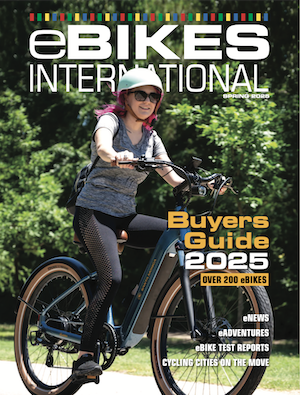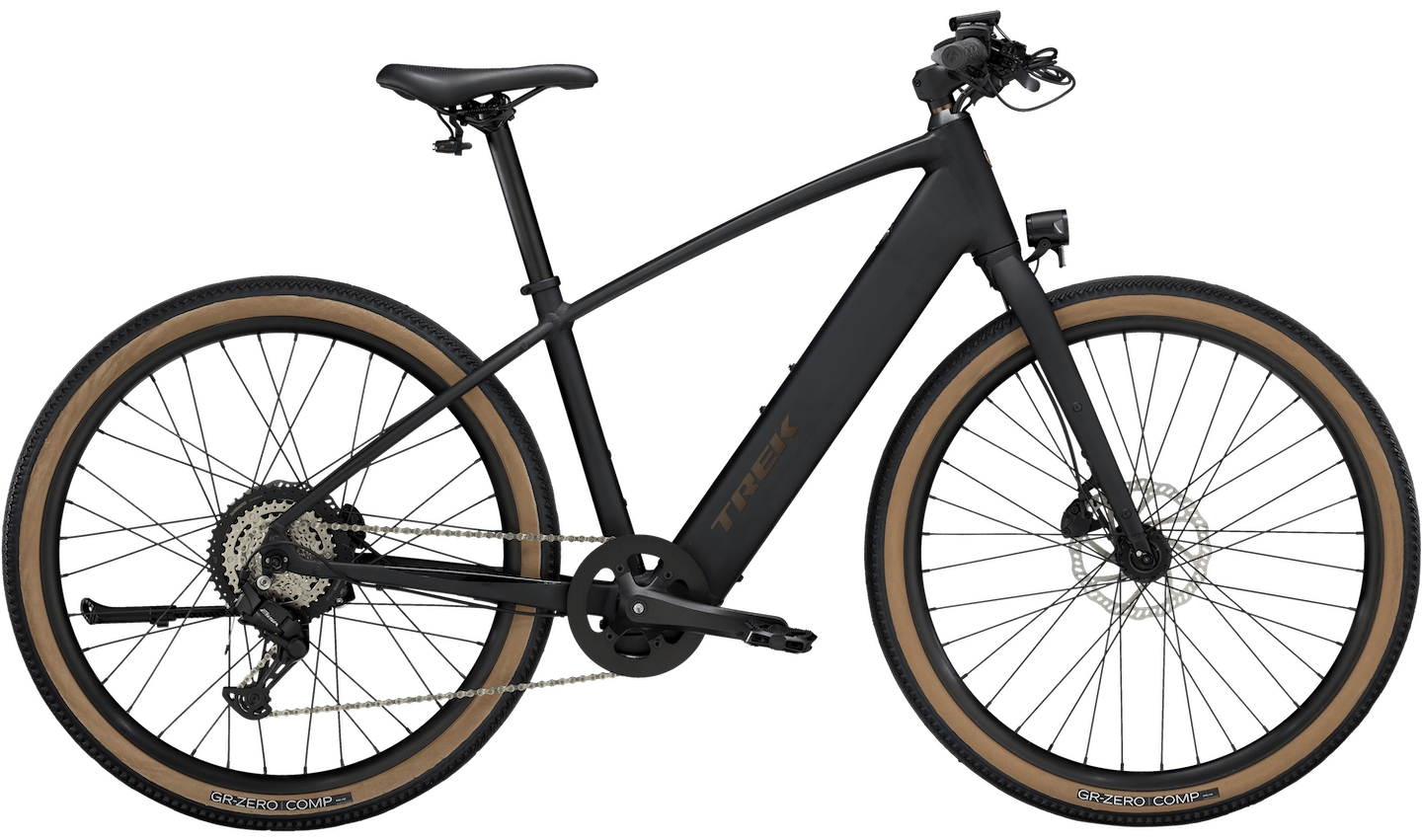June 15, 2025 - Taiwan is renowned as a world leader in cycling, electronics, machinery, and plastics, with the current buzz being about their strength in the semiconductor industry. Dive deeper into this eastern Asian country and you’ll also find world-class companies in the health, sporting goods and wellness industries.
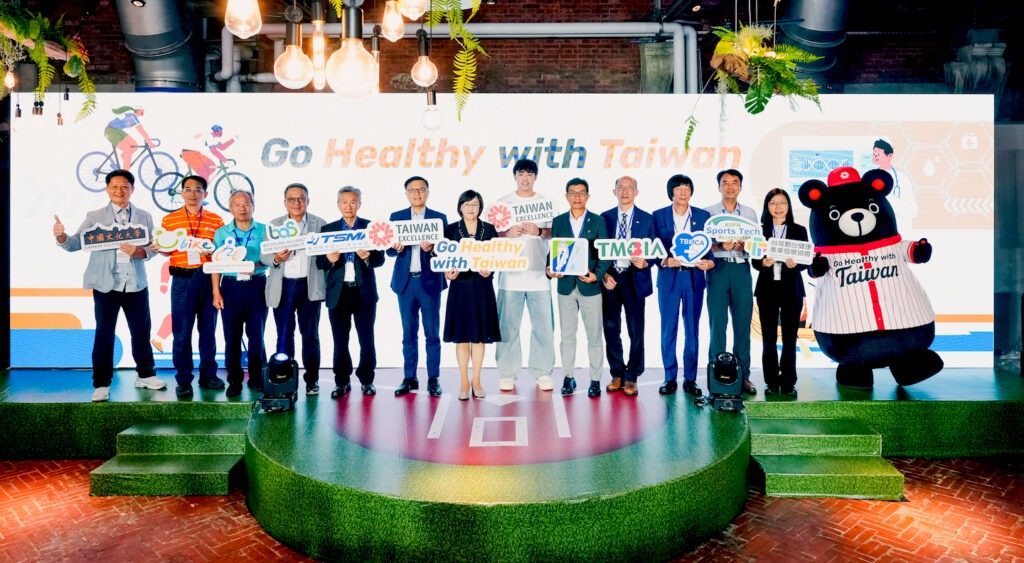
Building on its strengths in these sectors, and to enhance Taiwan’s global visibility while promoting international cooperation with local implementation, the 2025 “Go Healthy with Taiwan Campaign” was recently launched.
The initiative was directed by the International Trade Administration (TITA) and the Ministry of Economic Affairs, with the task of overseeing the campaign assigned to Taiwan’s External Trade Development Council (TAITRA).
Following the success of its “Go Green with Taiwan Campaign” in 2024, which garnered 396 proposals from 45 countries, the goal this year is to surpass 500 proposals across five continents. Proposals are being solicited from foreign companies, government agencies, entrepreneurs, research institutions, NGOs, associations and universities all vying for one of three grand prizes of $30,000 USD.
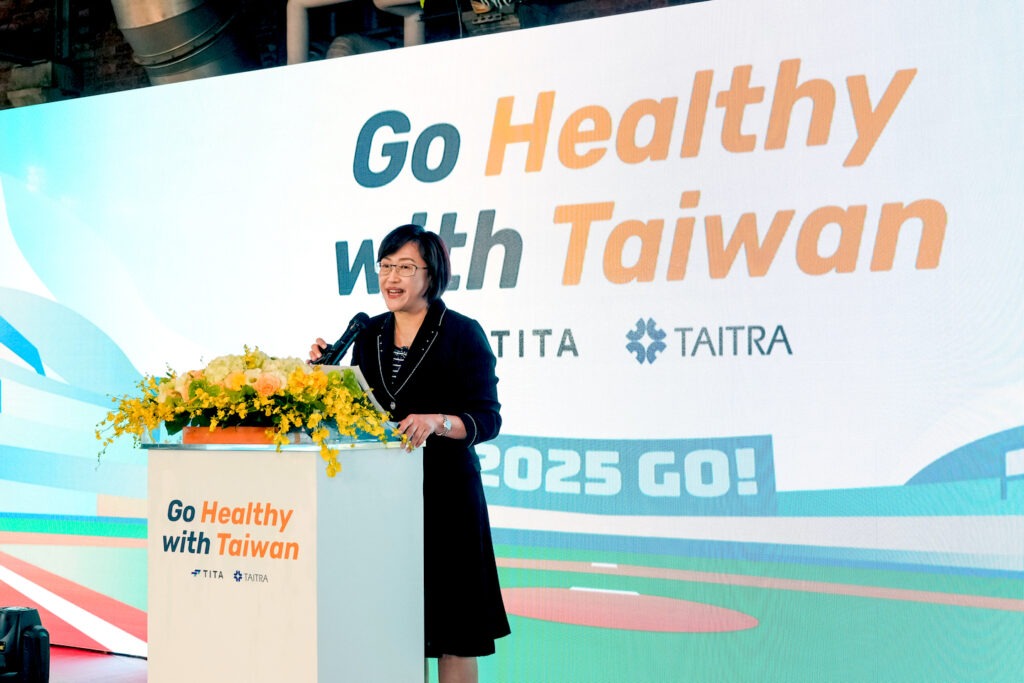
The official kick-off for the 2025 “Go Healthy with Taiwan Campaign” was on June 3 at the National Taiwan Museum in downtown Taipei. The venue was packed with representatives from government agencies, businesses, media and invited guests.
The baseball inspired theme titled “Pitching Taiwan’s Best: A Home Run for Proposals” also included appearances from Taiwanese baseball star Mr. An-Lo Lin and the Taiwan Excellence mascot “Fu Bear.”
Susan Hu, Deputy Director General of TITA, commented that the campaign is a crucial step in realizing President Lai Ching-te’s vision of a, “healthy Taiwan, and how this is a journey towards global collaborations.” Joe Choe, Executive Vice President of TAITRA, explained how this campaign shows, “the strength and innovation of Taiwan’s health industry” and how this collaboration with global partnerships can lead to “smart and sustainable healthy lifestyles.”
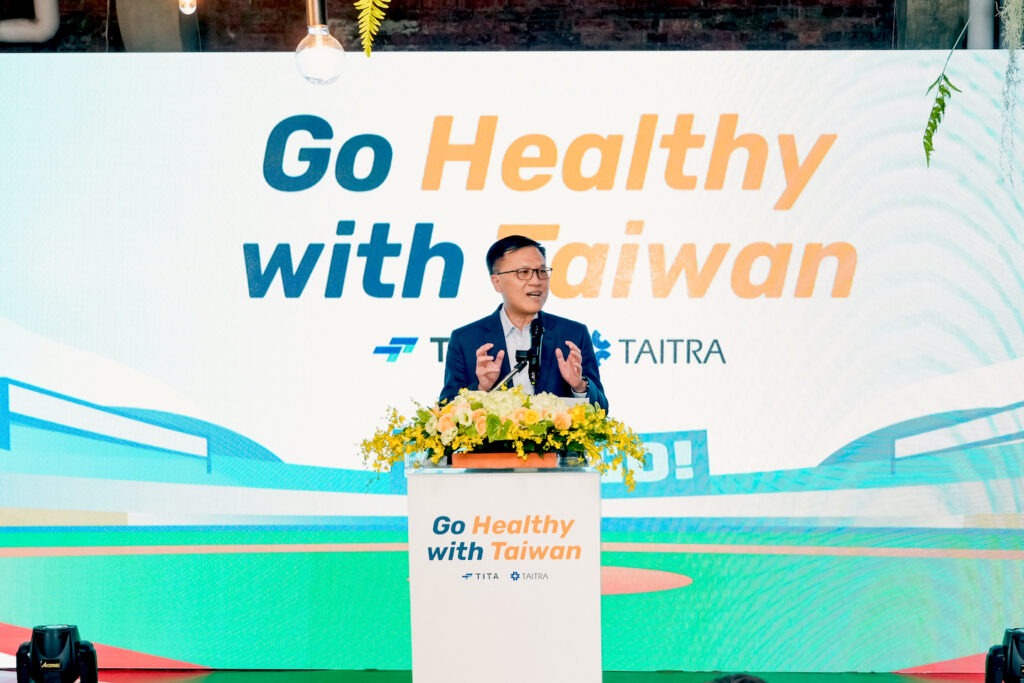
To help promote the 2025 “Go Healthy with Taiwan Campaign”, media representatives from around the world were invited on a 3-day tour to experience some of Taiwan’s leading companies in the health, sporting goods, fitness, wellness and bicycle sectors, along with the country’s cultural and tourism attributes.
The first leg of the tour began in the city of Taichung, a 2-hour drive south of Taipei, on the west coast of the island. This city of 2.85 million people is home to many of Taiwan’s major cultural destinations including museums, theatres, orchestras and parks, along with major industry players such as TSMC, an international semiconductor heavyweight.
The first part of our tour would see us visiting the Cycling and Health Tech Industry R&D Center (CHC), the Cycling Culture Museum of Giant Group, Johnson Health Tech and the Sportsman Corporation.
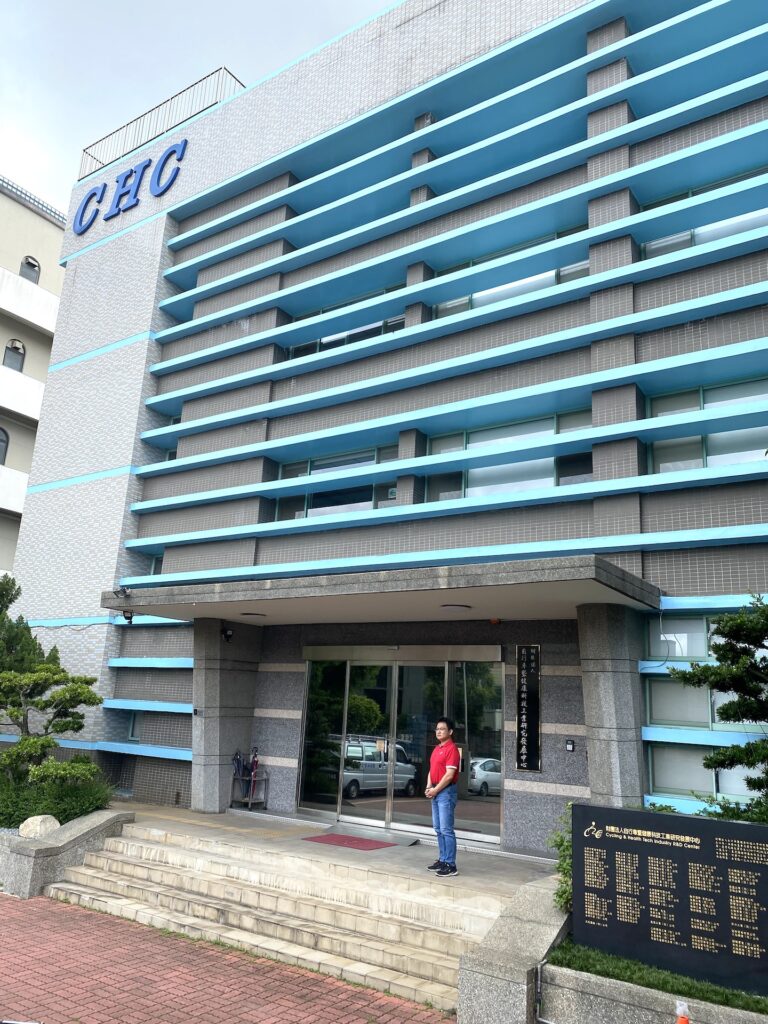
CHC is a non-profit organization founded in 1992 and has positioned itself as major resource in helping bicycle manufacturers, companies, designers and engineers to maximize their development opportunities as well as upgrading their competency and competitiveness in international markets.
Their headquarters contain 12 in-house labs specializing in areas such innovative design, R&D, training, product testing and certification, along with establishing standards in the manufacturing sector. Their highly educated staff of almost 100, includes 55% that hold Masters degrees in areas like mechanical engineering, material science, electronics and computer science.
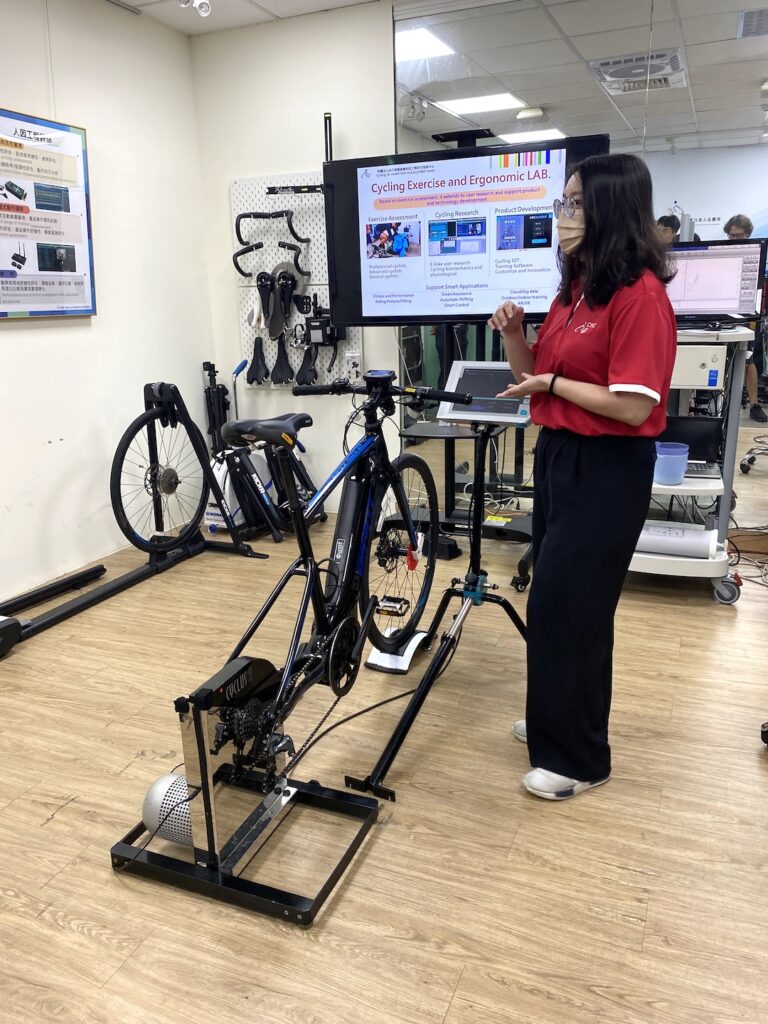
CHC has had many successes working with bicycles, e-bikes, fitness and medical equipment. Some of these include Olympic track bikes, e-handcycles, e-cargo bikes and indoor training systems. Their latest e-handcycle is not only designed to assist disabled people but also to provide transportation and exercise for able-bodied users. Their 4-wheel e-cargo bike utilizes automobile suspension technology providing stable, safe transportation for two children, or cargo. There’s also a fitness testing lab available to the general public in their facility.
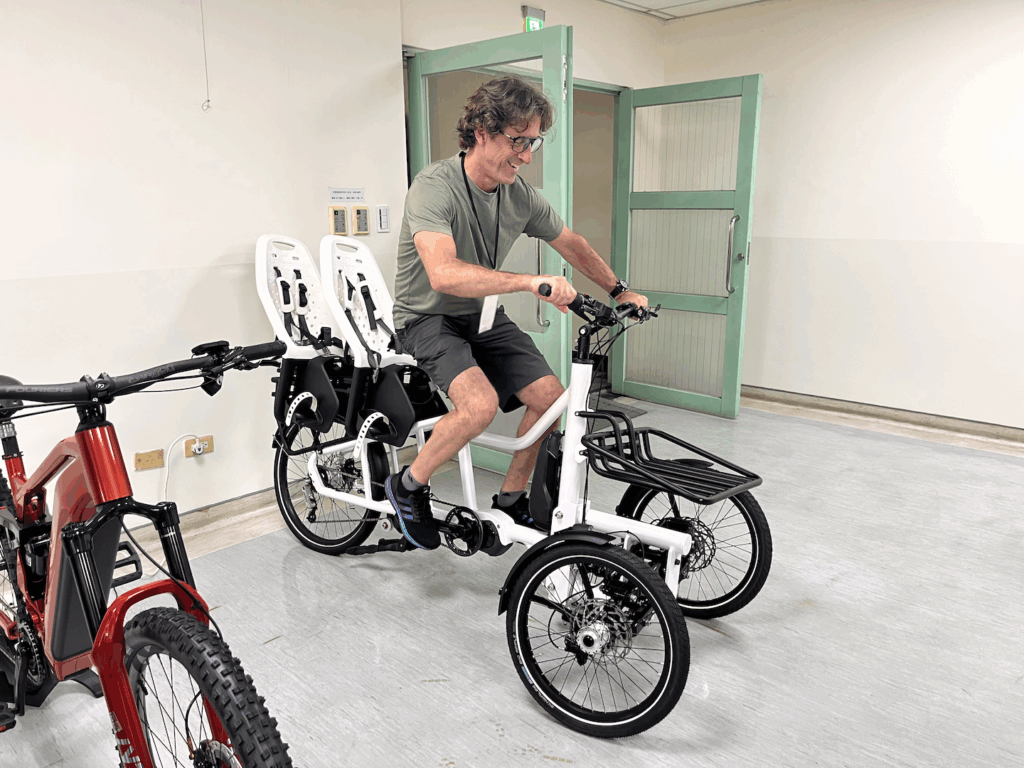
Another branch of CHC is their Bicycle Alliance for Sustainability (BAS) that was founded in 2022 to promote sustainability for the bicycle industry and to reduce the carbon footprint in the manufacturing of bicycles, while ensuring sustainable production. Currently, there are 82 members including Giant, Merida and KMC.
Taiwan has reached high levels of success in the global bicycle industry. In 2024, it boasted 986 manufacturers employing 42,000 people, with 80% of these companies clustered in the central region of Taiwan, where Taichung lies. The industry was valued at 4.8 billion USD with exports reaching 1.27 million units including 34% complete bikes and 66% components. Of these exports, Europe lead the way with 36%, USA 34% and China at 9%. Today, e-bikes make up about 50% of their market.
When asked about the effect of potential tariffs from the USA, Manager of International Cooperation Office, Vincent Wang, stressed, “Due to the strength of our domestic production, Tawain’s supply chains are safe, and we will take a wait and see approach.”
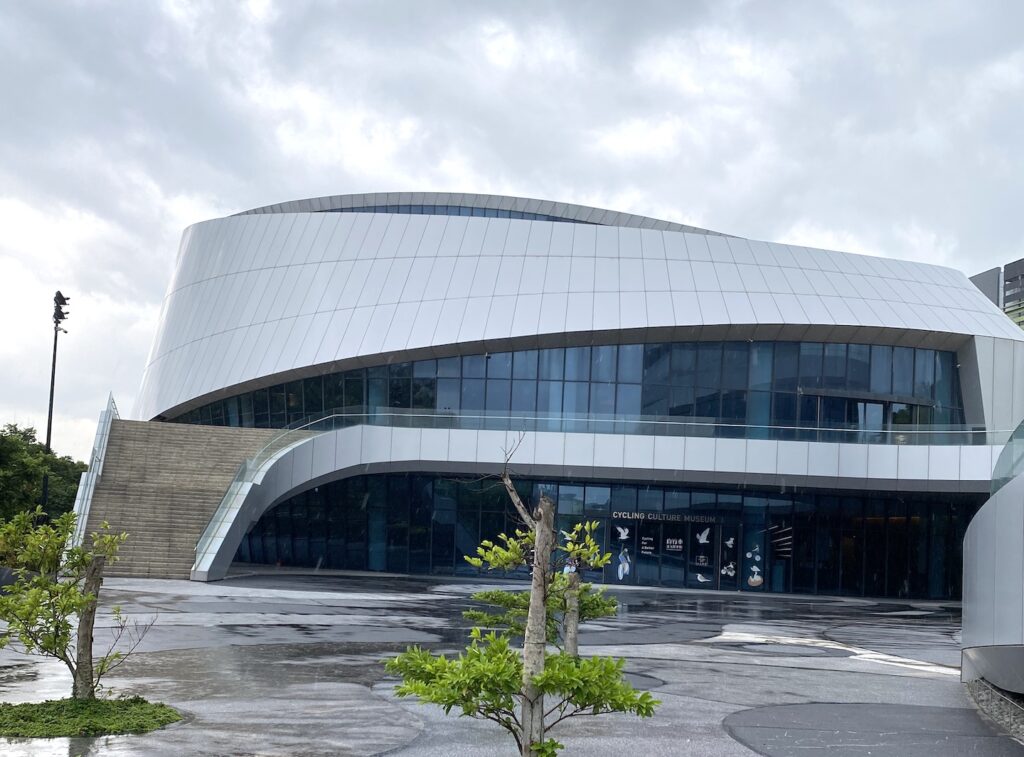
While in Taichung, we visited Giant Group’s Cycling Culture Museum. Giant Bicycles began in 1972 in Taiwan and has grown to become the world’s largest bicycle manufacturer. The company has pioneered many industry-leading technologies and designs, shaping the way for the current high-tech bicycle industry.
Giant Bicycles is actively involved in many other aspects of the cycling industry. It has taken a leadership role in the Bicycle Alliance for Sustainability (BAS), along with creating their own travel agency to help grow cycling tourism, with a goal of making Taiwan a “Cycling Paradise”.
Giant’s ultra-modern Cycling Cultural Museum is positioned right beside their global headquarters and is a showcase that highlights the evolution of the bicycle along with Giant’s role in the process.
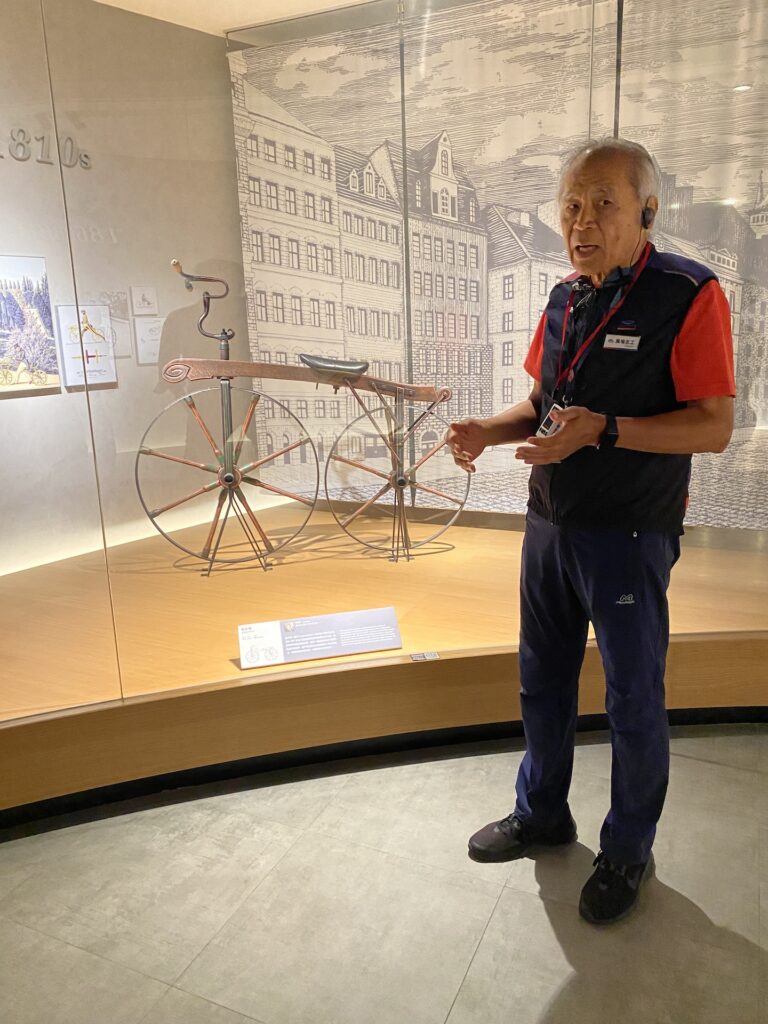
The “special effects” enhanced museum showcases the humble brake-less, pedal-less, first bicycle from 1810 and then follows its evolution over the next 215 years highlighting its progression in a well laid-out, interactive format.
The museum includes the science of bicycle design, featuring Giant’s pioneering of carbon fibre and aluminum tube designs. It also features some of the world’s top cycling locations including Amsterdam, Copenhagen, Portland, Tokyo and Taipei.
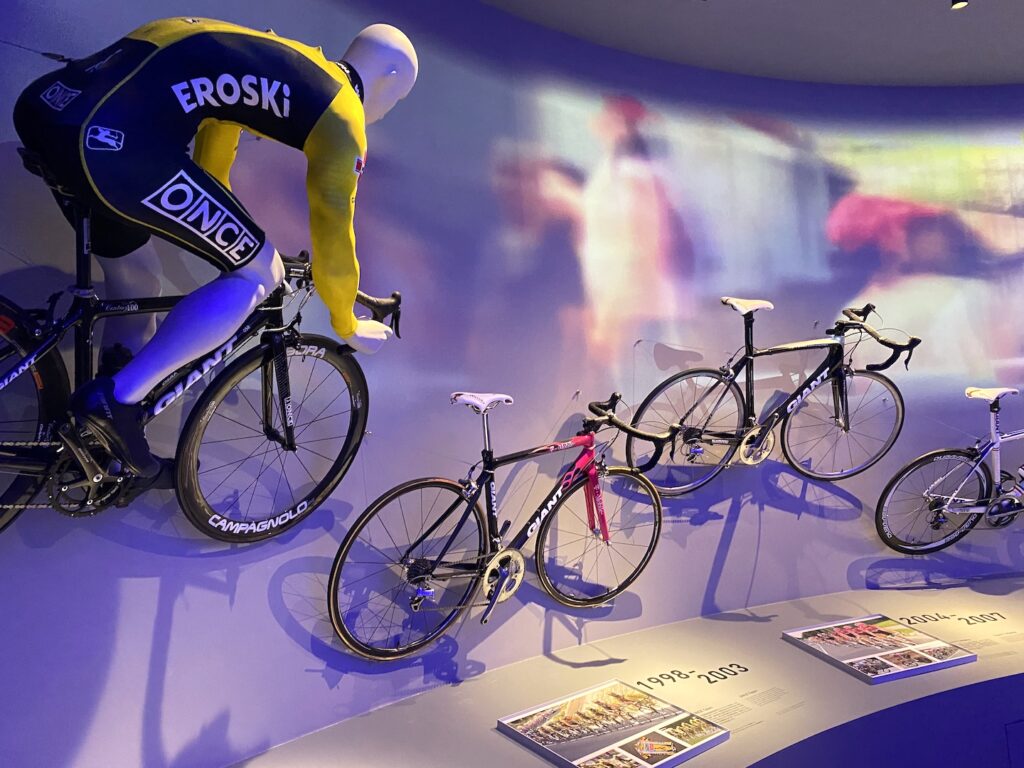
Giant’s investment in professional cycling with Team ONCE in the 1990s led to their compact frame development with their TCR road bike platform, and the company has continued their involvement with racing through the early 2000s with T-Mobile and Rabobank. Today, Giant continues to supply their bikes to professional road cycling World Tour Teams including Jayco AlUla for men and Liv AlUla Jayco for women.
The last leg of our museum tour took us to the top floor to experience Giant’s involvement with mountain bikes, their in-house bike fit system, and their e-bike ventures. The company offers a full line of e-bikes that utilize the SyncDrive motor, powered by Yamaha. The final stage of our tour had us battling head-to-head in a virtual bike race.
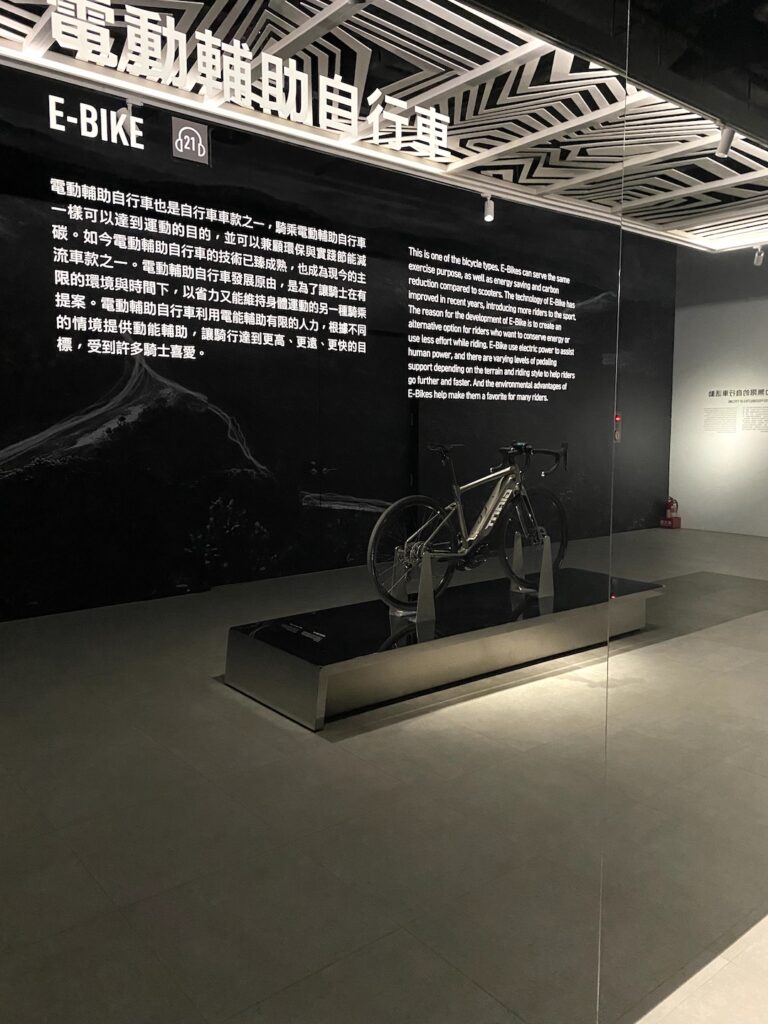
Today, Giant is renowned globally as a major bicycle brand along with its women’s-specific bike brand Liv, their commuter/leisure brand Momentum, and their Cadex line of wheels. Another factor in maintaining the company’s global dominance is that Giant also manufactures bikes for many other top bicycle brands.
Our next stop was at award-winning Johnson Health Tech, which has grown from humble beginnings and strong family values intertwined with hard work and a smart business sense, to become the world’s largest supplier of fitness equipment.
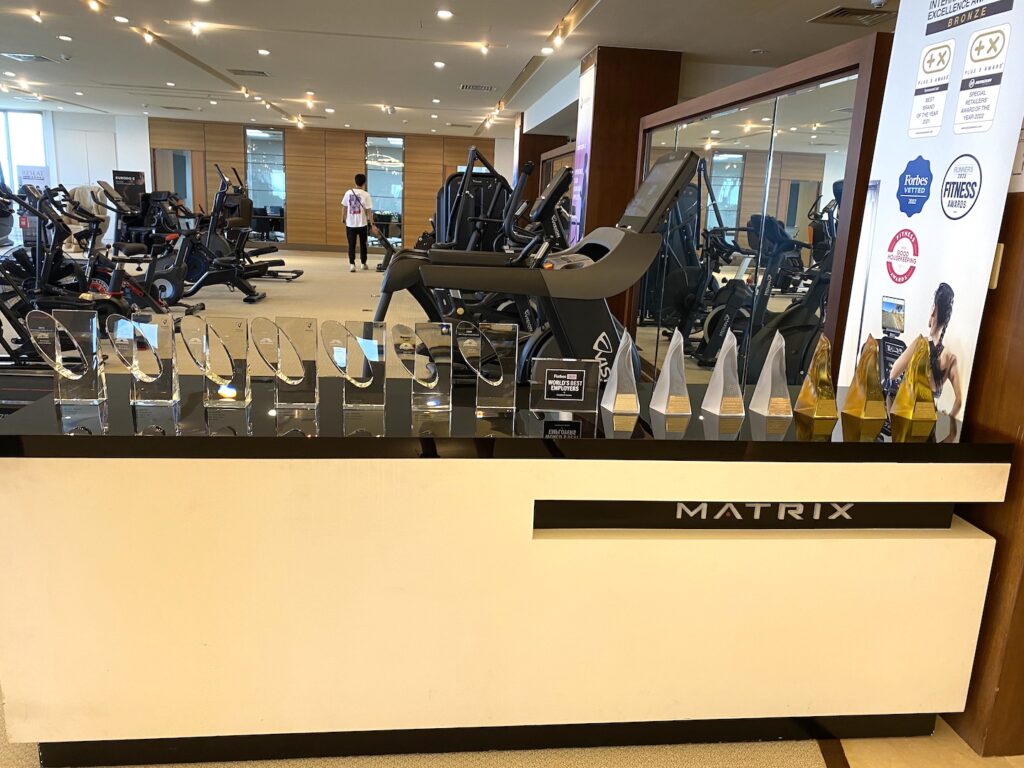
Johnson was founded by Mr. Peter Lo who grew up in a large family in rural Taiwan. His parents worked very hard, putting in long hours to provide for their family which turned out to be the fuel that ignited Lo’s hard work ethic and commitment to achieving success.
Moving to Taichung, he started Johnson Metals in 1975, the site of their current global headquarters. From starting a foundry to producing their own barbell weights, the next two decades saw successful investments and strong innovations that positioned Johnson as a world leader in fitness equipment.
Today their main products include a variety of exercise equipment under the brands of Matrix, Vision, Horizon, Schwinn and BowFlex.
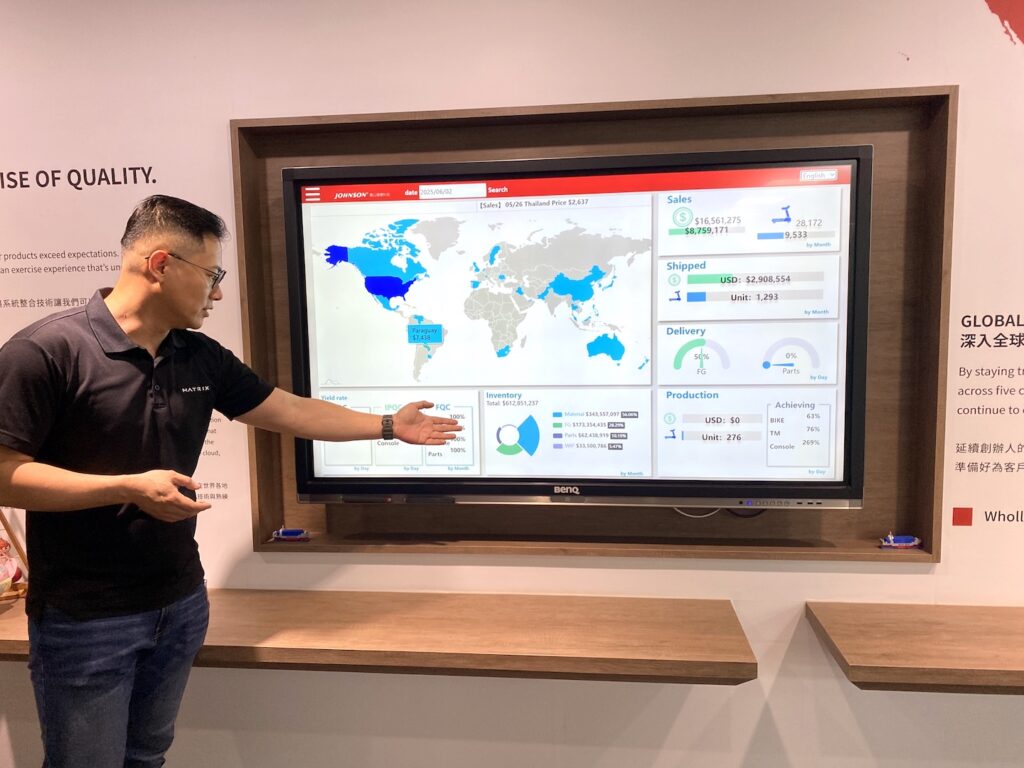
Johnson’s line of fitness equipment is positioned to address the needs of a variety of exercise users. Matrix, their premier line, is seen in many high-end fitness clubs around the world. Their Vision line is geared towards smaller fitness clubs, corporate gyms, hotels and home gyms. Horizon and BowFlex fit nicely into the home gym category while Schwinn provides their dedicated line of indoor cycling trainers.
While the indoor spin class craze as a fitness activity is not that big in Taiwan, it continues to be very popular in North America and in Europe. Germany leads the way with indoor spin classes, and Johnson is creating a special service team to directly assist the European spin cycling industry.
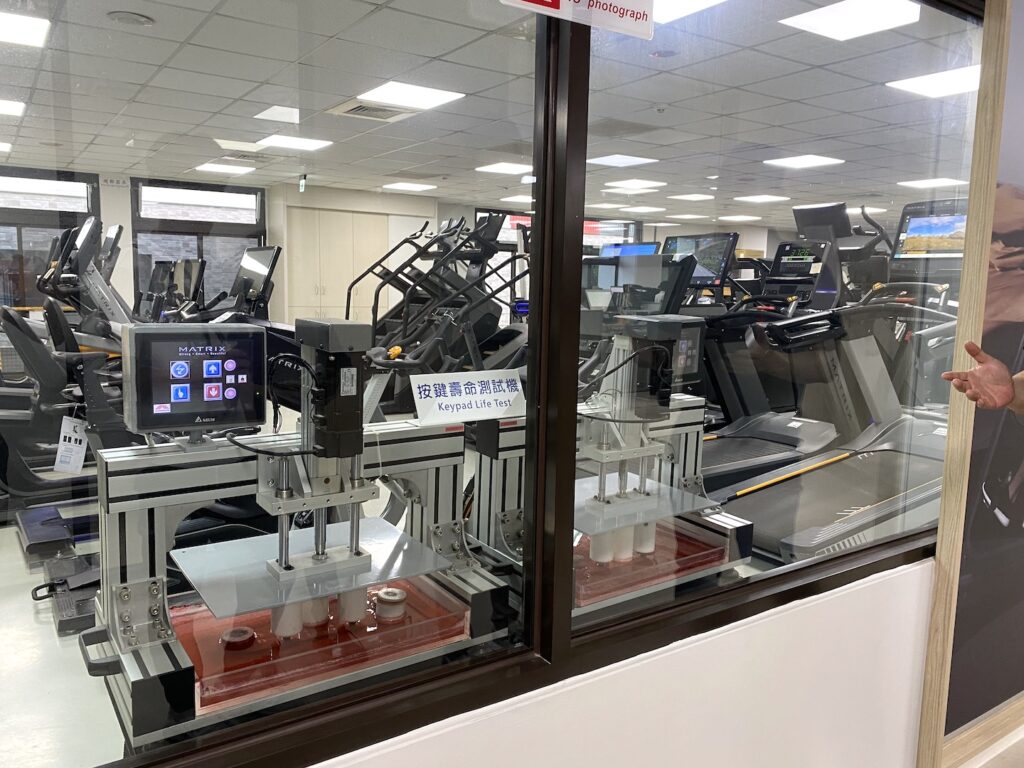
The company’s headquarters in Taichung are spread over two buildings and are home to their global offices, R&D, quality control, purchasing, and sales. Positioned to hit $2 billion US in sales in 2025 and with over 330 retail stores worldwide, 500 service centres and seven factories, Johnson Health Tech is well established to continue its upward trend as a world leader in exercise equipment.
The final industry stop of our tour was at the Sportsman Corporation, manufacturers of Turbo Tent. Formed in 1975, this Taipei-based family company began by manufacturing small tents for the OEM market.
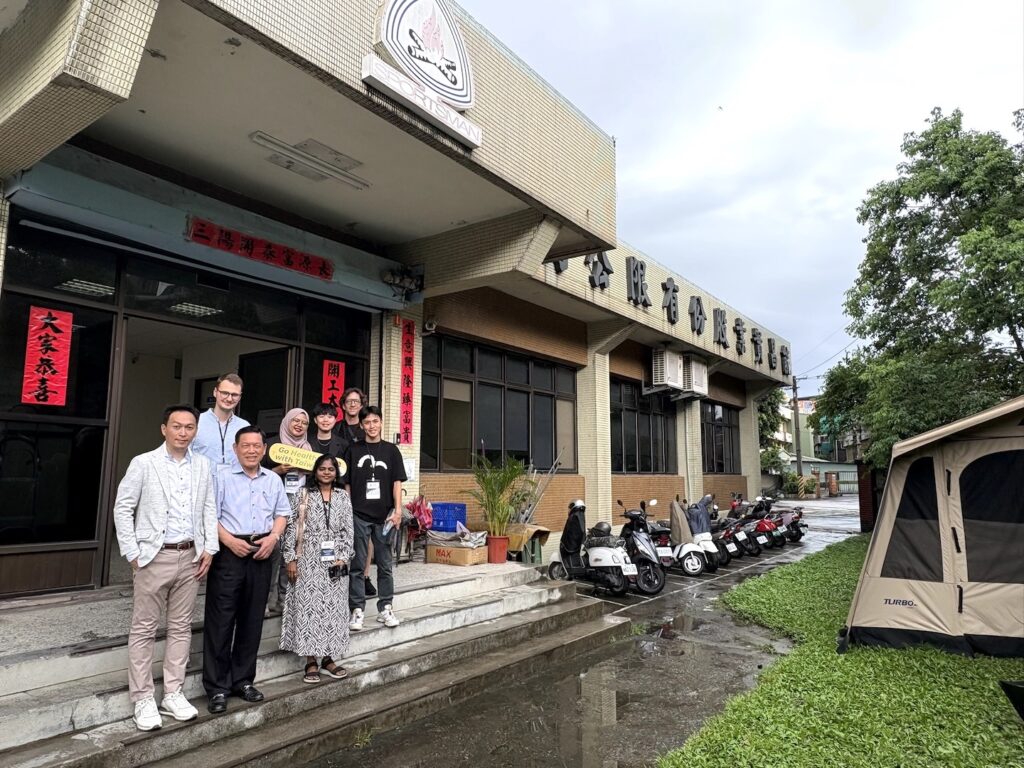
In 1995, they began making family camping tents for the Chinese market and in 2015 they established their own brand, Turbo Tent, which has grown into a worldwide leader, and can be seen in major retail outlets including Costco and Carrefour. Turbo Tent currently has its own brand stores as well, and frequently exhibits at outdoor shows.
Their feature model is their Pitch Up Style tent, which are large tents that are geared towards family camping and claim that they can be set-up in about 30 seconds. It’s their best-selling tent, which accounts for about 20,000 units per year.
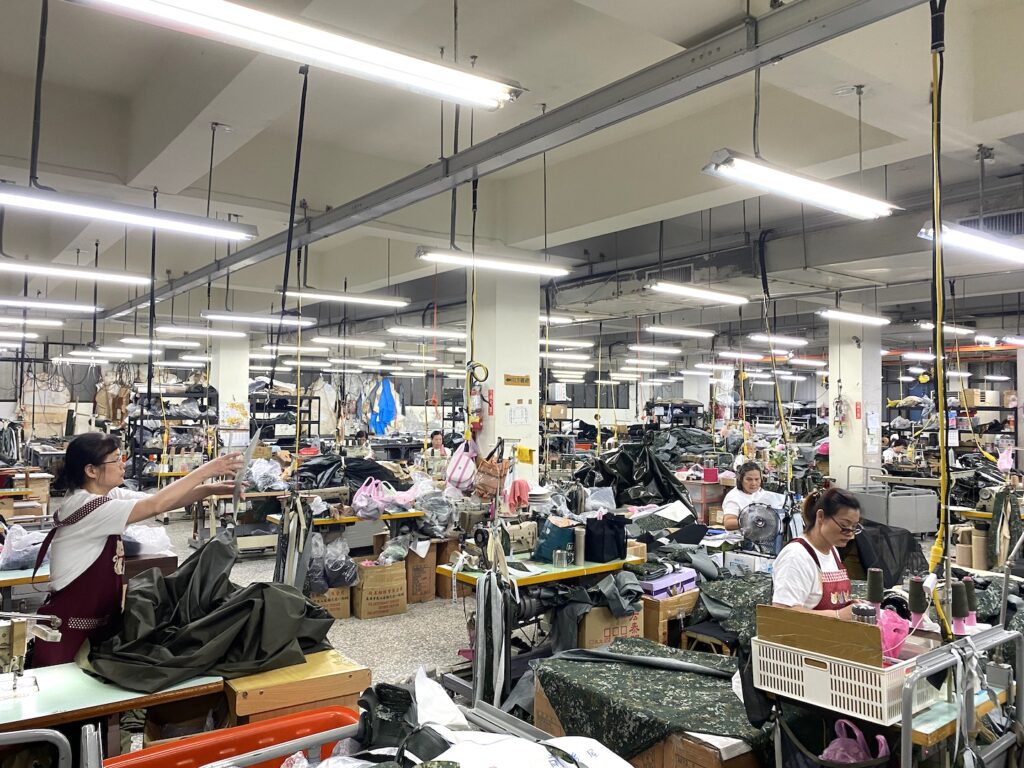
Turbo Tent is also a big player in the Taiwanese glamping business, with 30 campgrounds utilizing about 500 tents. They also supply tents for the military and Red Cross, and in emergency situations they’re able to produce a shipping container of emergency shelter tents in less than one week.
Turbo Tent employs 80 staff at their Taipei headquarters which also includes their manufacturing facility. The tent fabric is sourced nearby which allows for fast service and quality control. The poles are also manufactured in Taipei by another company and then shipped to their home base for assembly and shipping.
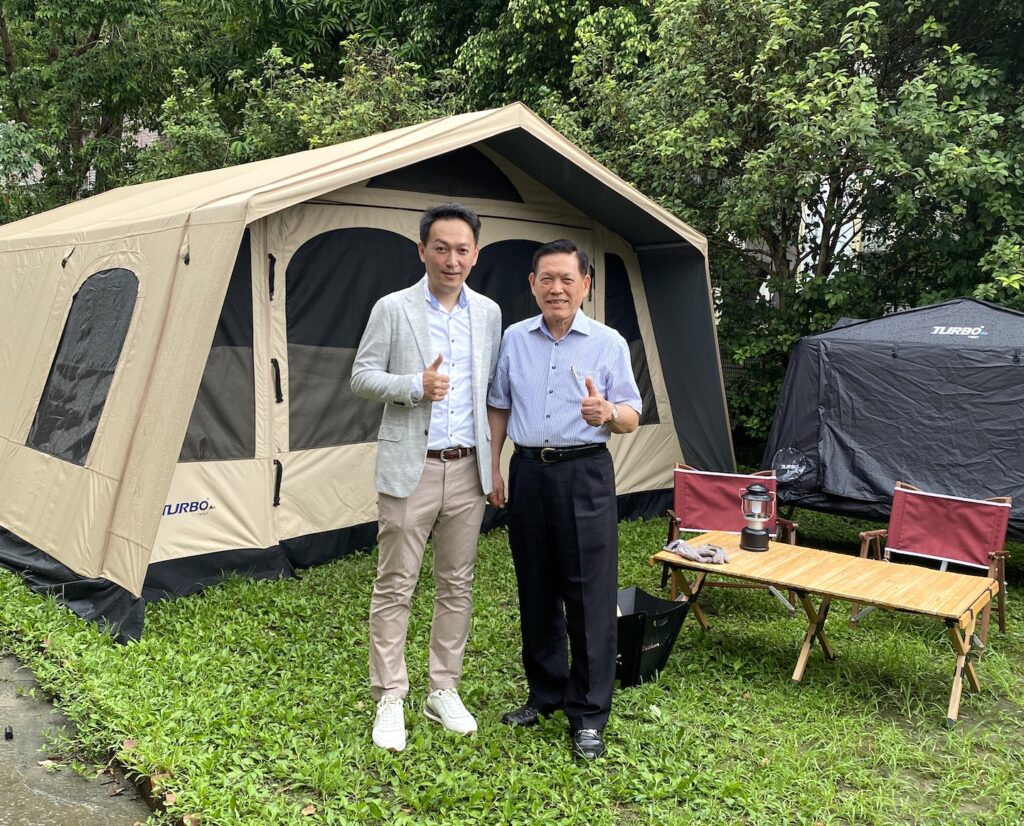
Turbo Tent is yet another success story which highlights cutting edge innovation, a strong business model and the strength of Taiwan’s supply chain network.
Our brief tour of just a few of Taiwan’s cycling, health and sporting goods companies and organizations barely scratches the surface of the multitude of high-quality products and innovations that are available from this tiny Asian powerhouse.
The country welcomes international partners to present and instill their cutting-edge ideas into proposals and compete in the “Go Healthy with Taiwan Campaign” for a chance to win one three grand prizes of $30,000 US, while helping to create a healthier and more sustainable future for the planet.
For more on the “Go Healthy with Taiwan Campaign” click here.
Stay tuned for part two of our tour which includes Taiwan‘s cycling tourism, culture, food and YouBike, the country’s bike-share system.



